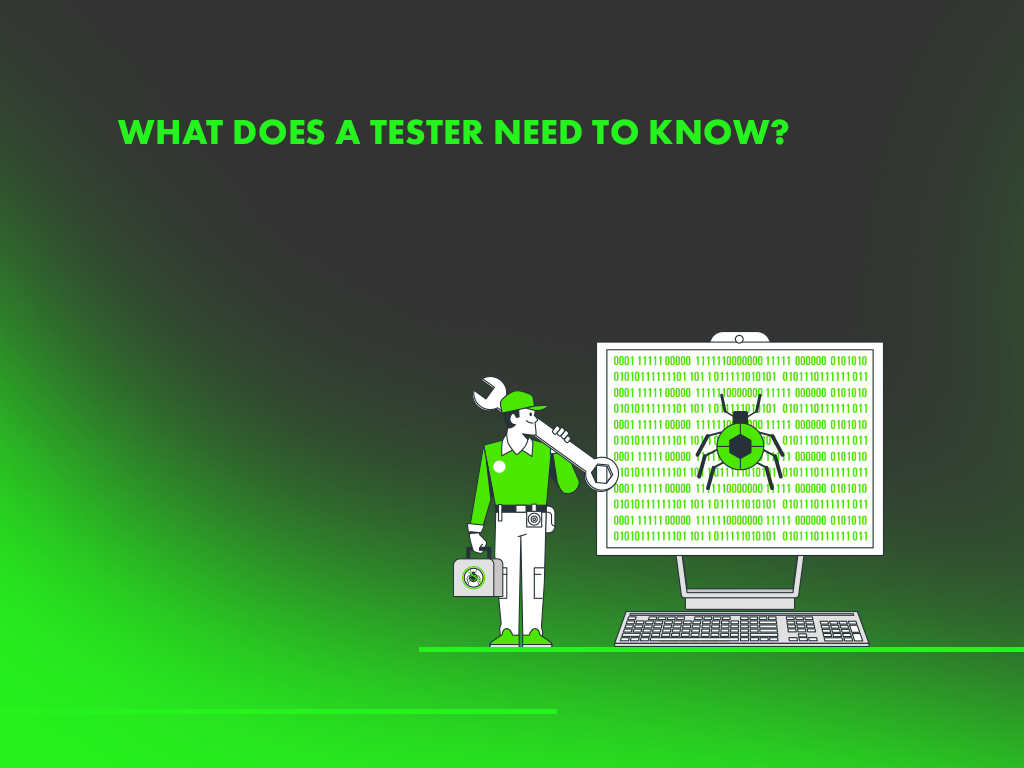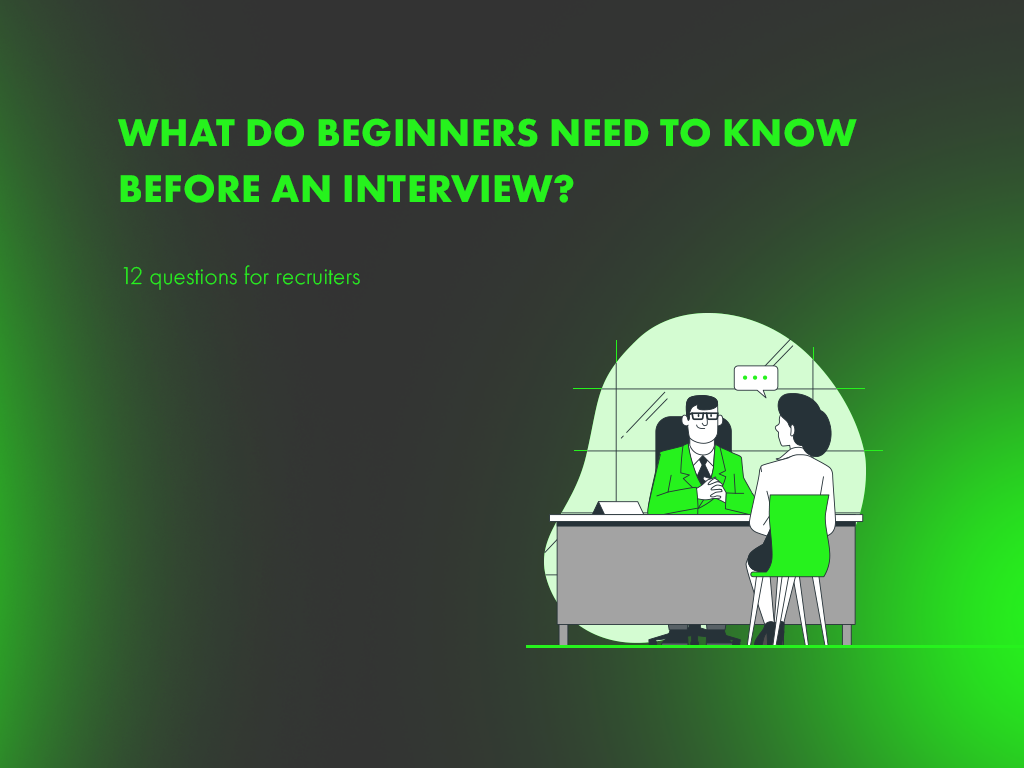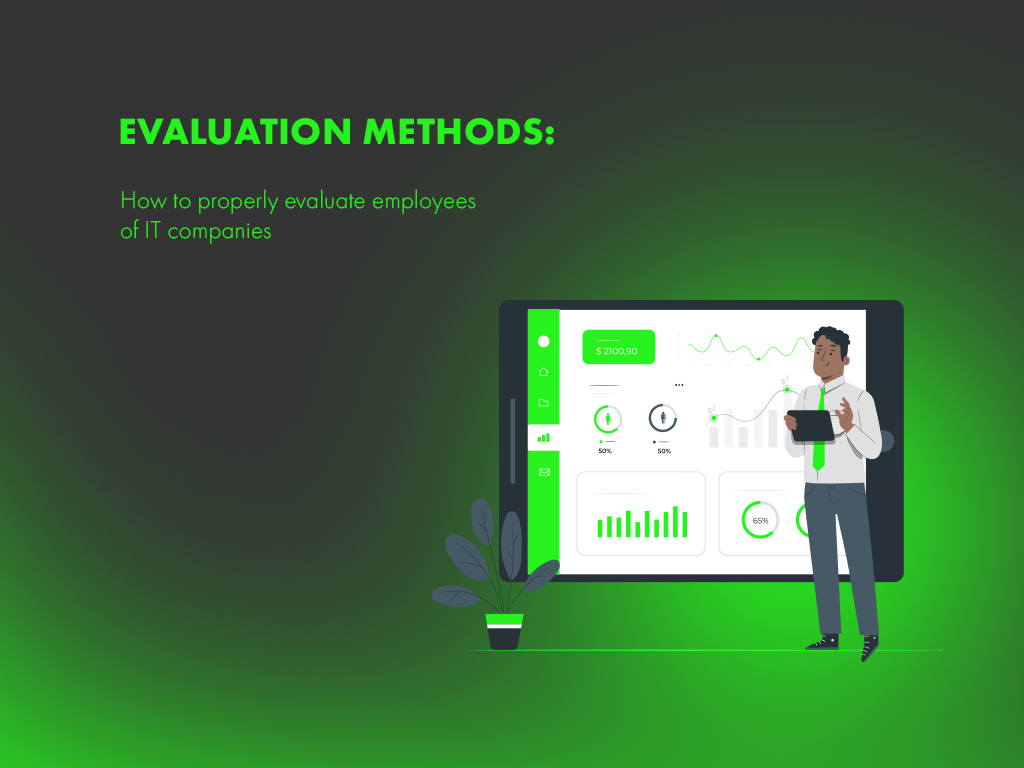The concept of testing implies a fully formed specialty in the IT industry, where there are relatively minimum requirements for starting, in comparison with other areas of development. A tester is an employee who is involved in testing digital products for performance, as well as finding bugs and improving quality.

The duties of a specialist in this area include not only the study of probable errors and failures in functioning, but also modeling of different situations that may appear during its direct use. Many newbies choose the profession of a tester due to the absence of excessive requirements and ease of work. What do you need to know about this specialty? Is everything as simple as it seems at first glance? Let’s figure it out together.
Let’s start with the numbers: according to the information provided on the dou.ua portal, newcomers in this area at the very beginning of their career are able to receive from $ 500, and more advanced specialists can count on a salary of $ 2,500. If you pump your skills to the maximum, perfectly understand the essence of the work and take the position of QA Tech Lead, then it is quite possible to receive more than $ 3500 per month. An excellent reason to think about mastering this direction in IT, isn’t it?
A newbie tester should consider the theoretical and practical part of the specialization. In the first case, we say that a specialist is responsible for checking the software and helping the development team fix bugs and prevent them from occurring.
In IT, there are several subspecies of the duties of such employees:
For clarity and a clearer explanation of the main tasks of the employees of this department, let’s look at a simple example of tasks for novice specialists that are found in the proposals of employers. Usually, juniors are required to test household programs, such as a calculator. In some cases, you will need to find bugs on the portal of the company where you plan to find a job. The examples, of course, are the simplest, but from them you can immediately understand what exactly the employer wants.
So, you decide that a QA specialist is exactly the profession that you need. Now the question is, what do you need to know? For a tester, especially a beginner, this section is very important. The first step is to learn the basic terminology and rules for future work. There is a lot of literature on the Internet that will help you plunge into testing without a base. We recommend that you pay attention to the textbook by Roman Savin “Testing.com” and the book by Svyatoslav Kulikov “Software Testing. Basic course”. A qualified professional must understand:
It is not at all necessary to study as a programmer first to start a career in testing. But you need to understand each stage of work – this is an important rule of a competent QA specialist. Without this knowledge, it is impossible to compose correct tests, which will lead to errors and poor quality of the final product.
Naturally, in addition to theoretical knowledge gained independently or in courses, practical skills will be required. You will need to learn:
You can check for bugs and improve quality for everything. Any programs, services, mobile applications and web portals fall under the watchful eye of a tester. We recommend that you engage in the preparation of documentation not only when studying the material on your own, but also when taking specialized courses. Regular practice has never harmed a single specialist. The better you write bug reports and cases, the more likely it is that recruiters from cool IT companies will be interested in you.
The exact skills of the applicant are formed from the selected vacancy. Usually, they immediately indicate what is expected of the future employee. Let’s be clear about what a QA tester needs to know. At least when applying for a job, a beginner will need to be able to:
The advantage will be knowledge of English at an upper intermediate level, as well as a basic understanding of programming languages such as Java or Python.
At the beginning of your career, you need to understand what the customer specifically requires. At the first stage of work, mastering of basic testing is important and only then improving of product’s quality. It is necessary to understand that junior specialists are called testers, and QA is already Middle and more advanced workers.
To receive the first order or hiring, you need to know the theoretical material, be able to find and create bugs in practice, as well as use bug tracking systems, work with test case storages and services for monitoring data transmission. A software tester, the requirements for which are indicated in the vacancy, can work for large corporations, small studios to provide testing services, as well as freelance. The desire to develop, practice regularly, as well as hard work – all this will help you get your dream job in IT!

We are often asked whether we hire junior specialists into the team, what knowledge we need to have for this, how the selection goes on, and much more.
It is no secret that our company conducts free training of specialists in the training center. The best students are invited to an interview for the project based on the results of the training. The company currently trains 16 programs in 12 cities, trains more than 1,000 students each year, and 60% of them are employed by the company based on the results of the trainings. We have collected the answers of recruiters (and not only them) to questions that will help to better understand the process of selection and hiring of junior specialists.

It took weeks to find the “right” job. It took hours to put together the right resume.
Almost done.
The final touch is the cover letter.

Employee evaluation is a mandatory part of the work process. This is an important procedure to improve employee performance, give them feedback and provide a ground for career advancement. So a person can better understand the value of their work, and the company – to see the contribution of each employee to the common cause.
Each company has its own assessment methods. To sum it all up, we would like to single out the 4 most popular ways to measure IT productivity.
Let’s go!

If you need to order a project from third-party contractors in which there are no strict quality requirements, try working with contractors on the Functional Requirements. This plan will help you develop a web portal, beautiful and user-friendly design, create an article for a blog or a service. Thanks to the functional requirements, you will immediately specify your own wishes and avoid “mistakes”. Let’s take a closer look at what this work plan is, what are the subtleties of the nuances of its preparation.
Leave a Reply